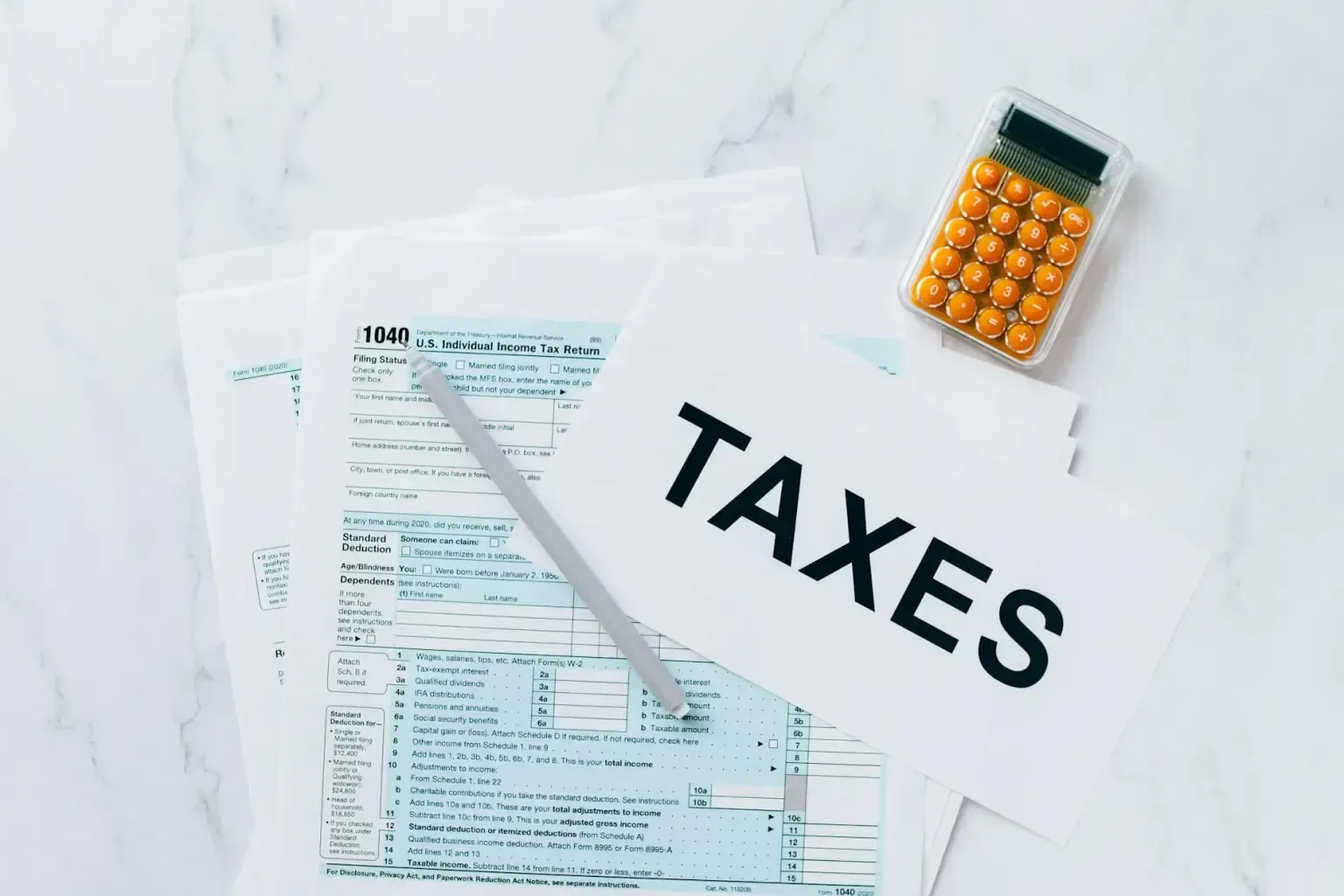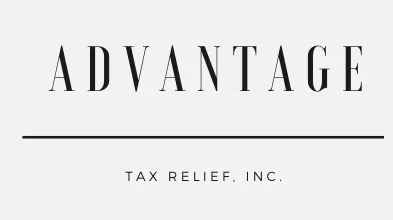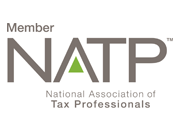Blog Layout
What to Do When Facing IRS Wage Garnishment: A Step-by-Step Guide
March 17, 2025
What to Do When Facing IRS Wage Garnishment: A Step-by-Step Guide
If you’re dealing with IRS wage garnishment, it can feel like you're trapped in a difficult situation. The IRS can take a portion of your paycheck to satisfy your tax debt, causing serious financial strain. However, you do not have to face this alone. There are steps you can take to stop garnishment and restore control over your finances.
This guide will help you understand what wage garnishment is, why it happens, and what actions you can take to end it.
Understanding IRS Wage Garnishment
Wage garnishment is a legal tool used by the IRS to collect unpaid taxes. Unlike many other types of debt collection, the IRS does not need a court order to garnish your wages. They will send you a Final Notice of Intent to Levy before initiating garnishment, and if you don't act, they will take a portion of your paycheck to pay off your tax debt.
How Wage Garnishment Affects You
Wage garnishment can create numerous challenges, including:
- Loss of Income: With part of your wages withheld, it can be difficult to meet daily living expenses.
- Damage to Your Credit: Unresolved tax debts and garnishments can hurt your credit rating, making it difficult to obtain loans or secure favorable financing terms in the future.
- Stress and Emotional Toll: The financial pressure can create stress, affecting your mental health and relationships.
Professional Impact: If colleagues find out about the garnishment, it could affect your reputation at work.
Steps to Take to Stop IRS Wage Garnishment
If you’re facing wage garnishment, take action quickly to put an end to it:
1. Respond to IRS Notices Immediately
If you receive any IRS notice about garnishment, it's vital to act quickly. Ignoring it will only escalate the situation. Contact the IRS and request a Collection Due Process hearing where you can address the garnishment.
2. Explore Payment Plans and Agreements
The IRS offers various options to settle your debt, such as installment agreements or an Offer in Compromise (OIC). These options allow you to repay your debt over time or settle it for less than what you owe.
3. Apply for Hardship Relief
If the garnishment is putting you in financial distress, you may qualify for a hardship exemption, which can temporarily stop the garnishment while you work out a solution.
4. Contest the Tax Debt
If you believe the IRS has made a mistake in assessing your tax debt, you have the right to dispute it. During this dispute process, garnishment can be put on hold until the matter is resolved.
5. Seek Professional Help
Dealing with the IRS alone can be overwhelming. A skilled tax professional can help you navigate the complex process, negotiate with the IRS, and secure the best possible resolution for your situation.
Why You Should Work with Advantage Tax Relief
The process of stopping IRS wage garnishment requires specialized knowledge and experience. Advantage Tax Relief, located in Itasca, IL, offers over a decade of experience in tax resolution. Their team of experts knows how to work with the IRS to resolve wage garnishment issues and put together a personalized plan for you.
Working with Advantage Tax Relief means having a dedicated partner who understands the nuances of IRS procedures and will advocate on your behalf to reach a favorable resolution. Their team will help you explore all options, including negotiating payment plans, filing for hardship relief, or contesting tax assessments.
Take Action Today
Don’t let wage garnishment control your life. Contact Advantage Tax Relief in Itasca, IL at 630-773-3200 for a consultation. Their team is ready to guide you through this process, offering the help you need to regain control of your finances and find relief from the IRS.

By 7066766659
•
March 28, 2025
The IRS in December sent a total of $2.4 billion in "special payments" to roughly 1 million Americans, part of an effort to ensure that people who didn't receive all of their federal stimulus checks during the pandemic would finally get the money. Most eligible taxpayers have already received their Recovery Rebate Credit, as the payment is called, but for those who haven't there is still time to submit a claim. But time is running out, as the deadline to file a claim is April 15. Here's what to know. What to know about the $1,400 IRS stimulus checks The Recovery Rebate Credit was designed for people who didn't get all or some of the stimulus checks when they were issued during the pandemic. Lawmakers authorized three stimulus payments, with two sent in 2020 and a third in 2021. The checks are a holdover from the three stimulus payments that were sent during the pandemic, as some people may not have received some of the money, even if they were eligible. The tax agency disbursed the funds after reviewing internal data that showed many people had filed tax returns but yet didn't claim what is known as the "recovery rebate credit" in 2021. However, non-filers, or those who have not filed Payment amounts will vary by person, with a maximum amount of $1,400 per recipient, the agency said in a statement. Who will get a payment from the IRS? Most taxpayers who were eligible for the stimulus payments have already received them directly, or later through the recovery rebate credit, the IRS said. However, the encourages non-filers to claim credits before the approaching April 15 deadline, as they may be eligible for the the up to $1,400 payment. Who is not eligible for a payment from the IRS? The eligibility requirements to file a claim to the 2021 Recovery Rebate Credit are as follows: -You are a legal U.S. resident. -Either you or someone you claim as a dependent has a valid Social Security Number or Adoption Taxpayer Identification Number issued by the IRS. -You cannot be claimed as a dependent on another taxpayer's 2021 tax return. -See here for more information on eligibility. Do you need to apply for the IRS payment? For those who have not yet received a payment, the answer is yes. While most eligible taxpayers have already received the funds through automatic payments, eligible non-filers will have to file a claim in order to get their payment. In order to claim the 2021 Recovery Rebate Credit, taxpayers must file a 2021 tax return by the April 15, 2025, deadline, "even if their income from a job, business or other source was minimal or non-existent," according to the IRS' website. Detailed information on how to file a claim for the 2021 credit can be found here. When will the IRS send the payments? The tax agency said the checks will be sent in December, with most of the payments arriving by late January 2025. The money will either be automatically direct deposited to the recipient's bank account or will arrive in the mail via a paper check. Contact us today for all your IRS needs! {{content_library.global.phone.148012611}}

By 7066766659
•
March 20, 2025
Tax season started in late January, but the IRS’s latest statistics show that many Americans are still waiting to file their taxes. As of February 7, 7.7% fewer tax returns have been received by the agency compared to a similar time frame last year, according to its latest data release. While the IRS expects filing numbers to even out, the IRS.gov website has experienced a 40% decline in visits this year to date over last year. Francine Lipman, CPA, a tax law professor at the University of Nevada, Las Vegas, says the reasons could be endless but probably come down to simple procrastination. “Despite all the Super Bowl ads, I don’t believe that tax issues are on people’s radar yet,” adds Lipman. This is surprising considering the political climate, says Jordan Rippy, an accounting professor at Johns Hopkins University’s Carey Business School, who expected to see an uptick in returns filed this year. “Given the general climate surrounding the new administration, I would have expected more anxiety in the general population and a desire to receive refunds more quickly,” she tells Fortune. Elon Musk’s Department of Government Efficiency (DOGE) reportedly visited the IRS on Thursday to begin analyzing the agency’s operations. Senator Ron Wyden (D-OR), ranking member of the Senate Finance Committee, later posted on X that “if your refund is delayed, they could very well be the reason.” Average tax refunds are higher this year so far The rise in electronic filing is one of the biggest changes to the tax system in the last decade. With over 90% of individual taxpayers now filing their returns online, the process has become easier to handle for many Americans. But taxpayers still miss out on over $7 billion in underclaimed and unclaimed tax credits and deductions each year. In the 2025 tax season to date, tax filers have received a 18.6% increase in their average refund amount ($2,065) compared to this time last year ($1,741). The IRS cautions this isn’t a perfect indicator of the final trend in tax refunds, since it’s early in the season. The agency says most refunds are issued within 21 days. In the final analysis, the average refund last year was around $3,138. Compared to 10 years prior, last year’s average rebate was down nearly 30% on an inflation-adjusted basis. Rippy says she is surprised that average tax refunds have not decreased more as Americans realize they can adjust their withholdings and get more money per paycheck throughout the year. “If you receive a large tax refund, what you've essentially done is given a loan to the government over the last year that you didn't have to give them, and you've done that interest-free,” says Rippy. At the same time, she admits that the fact that many Americans expect a big refund year after year is a good thing, as it’s a form of forced savings. While many end up saving their refund, others use it to pay down debt, make a home improvement, or go on vacation.

By 7066766659
•
March 5, 2025
An IRS tax lien is one of the most serious financial consequences of unpaid taxes. It can affect your credit, limit your financial freedom, and create a sense of uncertainty about your future. If you’ve received notice of a tax lien or are concerned about the possibility, understanding the process and your options is crucial. At Tax Advantage Relief, we help taxpayers navigate complex situations like these and find solutions that work for their unique circumstances. What Is an IRS Tax Lien? A tax lien is the government’s legal claim against your property—including real estate, personal belongings, and financial assets—when you fail to pay a tax debt. The lien ensures the IRS gets first priority over other creditors if you sell or refinance your assets. How Tax Liens Work Notice and Demand for Payment: The IRS will send you a bill outlining the amount owed. This is the first step in the lien process. Failure to Pay: If you don’t pay the tax debt by the deadline, the IRS files a public document called a Notice of Federal Tax Lien. Impact on Assets: The lien attaches to all your current and future assets, significantly affecting your financial stability. How a Tax Lien Affects You The repercussions of a tax lien can be far-reaching: Credit Score Damage : Tax liens can appear on your credit report, making it harder to secure loans or credit lines. Asset Restrictions : Selling or refinancing property becomes difficult, as the lien ensures the IRS is paid first. Business Impacts : If you own a business, the lien may attach to its assets, jeopardizing operations. Ignoring a tax lien will not make it disappear. In fact, the longer you wait to address it, the worse the consequences become. How to Remove an IRS Tax Lien Removing a tax lien is possible, but it requires understanding your options and acting decisively. Here are some common ways to address a lien: 1. Pay the Tax Debt in Full The most straightforward way to remove a lien is to pay off your tax debt completely. Once the debt is paid, the IRS will release the lien within 30 days. While this may not be feasible for everyone, it’s the quickest route to resolution. 2. Set Up an Installment Agreement If you can’t pay the debt in full, an installment agreement allows you to make monthly payments over time. While the lien remains in place until the debt is paid off, the agreement prevents further collection actions. 3. Apply for an Offer in Compromise (OIC) An Offer in Compromise lets you settle your tax debt for less than you owe. If the IRS accepts your OIC, they will release the lien once the agreed-upon amount is paid. Keep in mind that not everyone qualifies for this program. 4. Request a Discharge of Property If you need to sell or refinance a specific asset, you can request a discharge of property from the lien. This removes the lien from that particular asset, allowing the transaction to proceed. 5. Subordination Subordination doesn’t remove the lien but allows other creditors to take priority over the IRS. This can make it easier to secure a loan or mortgage. 6. Withdrawal of the Lien In some cases, you may qualify for a withdrawal, which removes the public Notice of Federal Tax Lien. This option is available if you’ve paid your debt in full or are on a direct debit installment agreement. How to Prevent a Tax Lien The best way to deal with a tax lien is to prevent one from being filed in the first place. Here are some tips: File Your Taxes on Time: Even if you can’t pay, filing on time helps avoid additional penalties. Communicate with the IRS: If you’re struggling to pay, reach out to the IRS to discuss payment options. Seek Professional Help: Working with a tax resolution expert can help you address your debt before it escalates. Why Professional Help Matters Navigating tax liens and IRS procedures can be overwhelming. A tax resolution professional has the experience and knowledge to: Negotiate with the IRS : They can help you secure favorable terms for payment plans or settlements. Protect Your Assets : An expert can advise on the best strategies to prevent asset seizures or other enforcement actions. Save Time and Stress : Dealing with the IRS can be time-consuming and frustrating. Let a professional handle the process for you. Common Myths About IRS Tax Liens There’s a lot of misinformation about tax liens, which can lead to unnecessary panic or inaction. Let’s debunk some common myths: Myth: A Tax Lien Means You’ll Lose Your Property Immediately. Truth: A lien is a claim, not a seizure. While it’s serious, you won’t lose your property unless the IRS enforces the lien through a levy. Myth: You Can’t Do Anything Once a Lien Is Filed. Truth: There are several ways to address and even remove a lien, as discussed above. Myth: Tax Liens Disappear Over Time. Truth: Liens remain in place until the debt is paid or the statute of limitations expires, which can take up to 10 years or more. Take Action Today If you’re dealing with an IRS tax lien or want to prevent one, the time to act is now. Ignoring the issue will only make it worse, but with the right help, you can resolve your tax problems and move forward with confidence. At Advantage Tax Relief, we’re here to provide the guidance and support you need. Call us at 630-773-3200 to schedule a free consultation. Let us help you take control of your tax situation and protect what matters most.
,
This is a placeholder for the Yext Knolwedge Tags. This message will not appear on the live site, but only within the editor. The Yext Knowledge Tags are successfully installed and will be added to the website.
This is a placeholder for the Yext Knolwedge Tags. This message will not appear on the live site, but only within the editor. The Yext Knowledge Tags are successfully installed and will be added to the website.
This is a placeholder for the Yext Knolwedge Tags. This message will not appear on the live site, but only within the editor. The Yext Knowledge Tags are successfully installed and will be added to the website.
COVID-19 update:
Advantage Tax Relief, Inc. is open and helping clients via no-cost initial telephone consultations, no- contact document drop-offs, and electronic communications throughout the process.
Hi. Do you need any help?
Privacy Policy
| Do Not Share My Information
| Conditions of Use
| Notice and Take Down Policy
| Website Accessibility Policy
© 2025
The content on this website is owned by us and our licensors. Do not copy any content (including images) without our consent.







Share On: